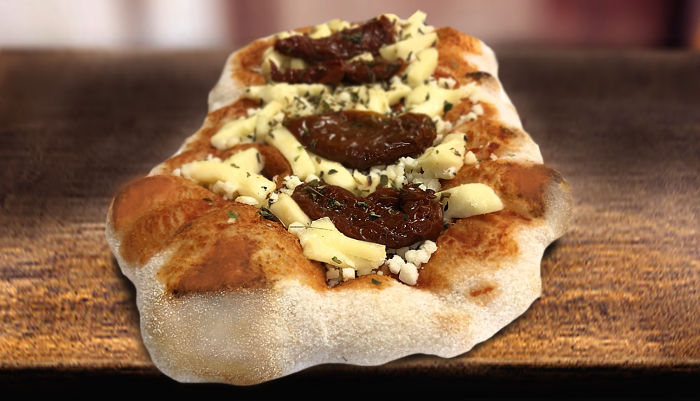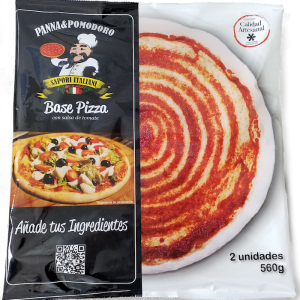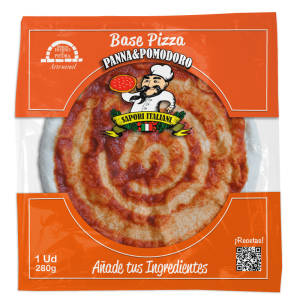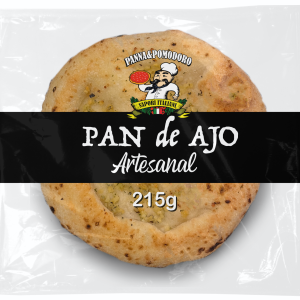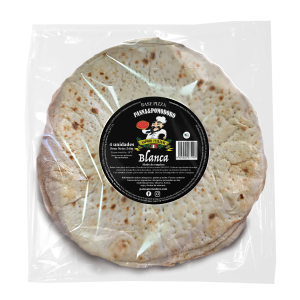
The pinsa has its origin in Ancient Rome, and shares characteristics with another classic of Italian gastronomy such as pizza. But, as we will see, there are certain nuances that differentiate them.
The first is found in the name: “Pinsa” is not “Pizza”.
The term «Pinsa» comes from the Latin «pinsere» which means “to crush, press, crush”, which is the way of “kneading” the pinsa dough when preparing it.
The second difference with the pizza appears at first sight: instead of being round, the pinsa is oval.

The way of working it is also different from that of traditional pizza since the dough has to be prepared well in advance and it has to rest for 48 hours.
By having a longer fermentation, it becomes more digestible and acquires a particular texture and fragrance of the pinsa.
How do we make the Pinsa in Panna & Pomodoro?
Our factory is like a pin shop, but on a large scale: a single pinsa is born from each ball of dough.
In the preparation of our pinsa, a mix of flours is used, which needs a greater amount of water and a mother dough also called “Biga”, which will provide consistency and flavor. It will reach its 48 hours of fermentation and then it will be manually cut and stretched.
We use a refractory stone oven to pre-bake the dough, in which we take care that the lower part remains crispy. You will give the last touch of cooking at home with your oven.
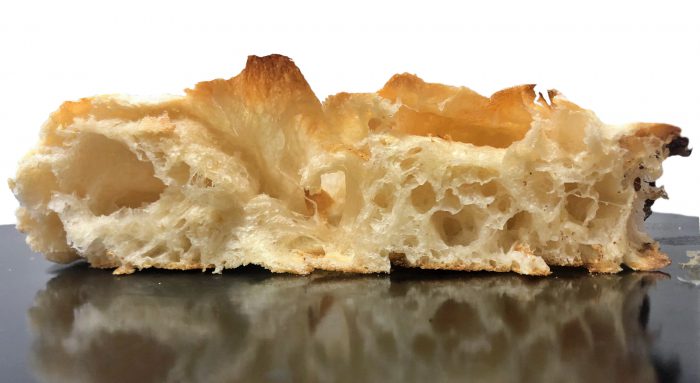
Whether with our different Roman Pinsas: Margarita, Pepperoni, Ibérica, Natura, and our La Blanca Pinsa Bases and La Roja Pinsa Bases with tomato sauce (where you add the ingredients you like the most), the result will be exceptional.
Because in any of these pinsas you will taste a light dough, with a crunchy exterior, a soft and airy crumb inside, and ingredients specially selected for their quality and flavor. The aroma will anticipate the experience that, finally, your palate will confirm.
We have collected the Roman tradition and added our experience in pizza dough to be able to bring to your home a unique pinsa, with a recipe so simple and ancient that it has come back to stay.
